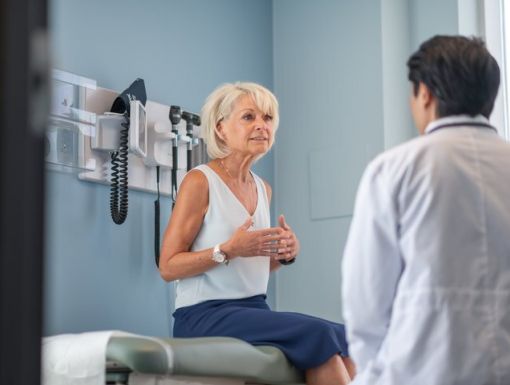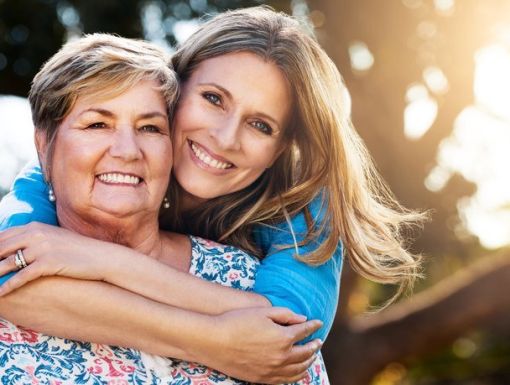
A Palliative Perspective on COVID-19
When we think about the role of palliative care in the COVID-19 pandemic, we certainly find ourselves in extraordinary circumstances. As the novel coronavirus continues to spread and put patients in the intensive care unit, many hospitals across the country are experiencing death and dying like never before. If there is ever a time to turn to experts in the management of symptoms related to illness and dying, it is now. Palliative care professionals are the experts many patients and family members are seeking.
For those less familiar with the specialty, palliative medicine is an additional level of support focused on improving the quality of life for patients with serious or advanced medical conditions. Generally speaking, at any age and at any stage, palliative care may be appropriate. Under the umbrella of palliative care, hospice is its own specialized service geared towards patients near the end of life, usually with a prognosis of six months or less.
The public often misconstrues what palliative care providers really do, assuming they only get involved in the final stage of life to simply hold hands, hug people, and sing kumbaya. Patients and families commonly fear the words 'palliative' and 'hospice,' thinking it means the end has come and it's time to give up. The truth is palliative care is about getting the most out of life when it matters most. This service goes beyond providing basic comfort measures. Providers in this field of medicine specialize in easing suffering and supporting families. As many hospitals on the frontlines are learning, palliative specialists know the value of making time for compassionate care and are an invaluable resource in the midst of crisis.
Within weeks, the impact of the COVID-19 pandemic forced health care providers across the US to re-evaluate the way they delivered patient-centered care. Our community continues to face a virus that readily spreads between people, and we have responded by limiting contact and isolating ourselves from those affected. Although necessary, social distancing comes at a cost: it infringes upon the ability to provide compassionate care to patients.
Pioneers like Elizabeth Kübler-Ross1 pushed for a more holistic approach to medicine that focused on a patient’s goals and wishes, accounted for psychosocial and spiritual suffering, and offered a dignified death surrounded by loved ones. To further this mission, the palliative team at Ochsner has been working to incorporate the No One Dies Alone Program. This would allow patients without friends or family at the bedside to have a qualified and comforting volunteer presence at the time of death. Unfortunately, the spread of COVID-19 has put the program’s progress on hold. Family and friends of patients are now being stopped at the door and all non-essential persons such as volunteers have been removed from the clinical setting for the foreseeable future. With the entire globe facing the most widespread virus in recent history, we have officially transitioned from “no one dies alone” to “everyone dies alone.”
Since the beginning of 2020, over 350,000 people across the globe have died because of COVID-19.2 The rapid deterioration of many patients after contracting the virus has reminded us that life can turn on a dime for anyone. With the pandemic still far from over, today is the time to prepare for life’s unpredictability. The responsibility is on you to make the tough decisions now so that your family does not have to endure the pain of making them for you. To help you begin your own advance care planning, familiarize yourself with the various advance directives as summarized below.
1) Healthcare Power of Attorney
The first document to consider is the healthcare power of attorney (HCPOA). It is a written statement that gives a specified person the authority to make decisions on your behalf if you were to lose the capacity to make decisions for yourself. For example, in the context of the current pandemic, if you were to become sick with COVID-19 and your condition were to deteriorate quickly to the point that you end up in an intensive care unit on a ventilator in a coma, your HCPOA would be accessed and the person that you designated as the ultimate healthcare-related decision-maker would be contacted. Ideally, this person should be someone who knows you well, yet is not dependent on you or highly involved in your life on a day-to-day basis. A good example would be an old friend that lives in another state but who you still keep in touch with. This friend would know your values and way of life and would likely have less emotion involved than, say, your spouse, parents, or adult children, when the time came to make difficult decisions. If an HCPOA is not in place, Louisiana has a state-mandated hierarchy of decision-makers to defer to.
2) Living Will
A living will is similar to the HCPOA in that it can be a way for your decisions regarding medical care and treatment to be carried out if you were no longer able to make your wishes known. The difference, generally speaking, is that the living will simply acts as a guide for the HCPOA to assist in the decision-making process. Ultimately, the HCPOA has the final say. If there is no HCPOA, the living will dictates medical care and treatment. Of course, every situation is unique and plenty of variation exists when it comes to advance care planning from state-to-state and person-to-person.
3) Louisiana Physician Orders for Scope of Treatment (LaPOST)
The Louisiana Physician Orders for Scope of Treatment (LaPOST) document differs from the living will and HCPOA in that it is not completed in advance, but at the time of diagnosis and acts to translate the directives into a medical order. Again, it is completed only after a person is diagnosed with a terminal and irreversible condition. The LaPOST is an essential part of the goals of care discussion between a patient and his or her physician and must be followed by all health care providers from the time that it is completed.
Advance care planning is intended to give you control over your death, one of the most important points in your life. It also serves as a crucial support to your loved ones when they are faced with the impossible circumstances of speaking for you when you cannot. There is no better time than now to make your wishes known.
Click here to fill out your advance care plan today.
References:
1. Kübler-Ross, E. (1969). On Death and Dying: What the Dying Have to Teach Doctors, Nurses, Clergy & Their Own Families.
2. Coronavirus Resource Center. Johns Hopkins University of Medicine. https://coronavirus.jhu.edu/ma.... Accessed May 27, 2020.



